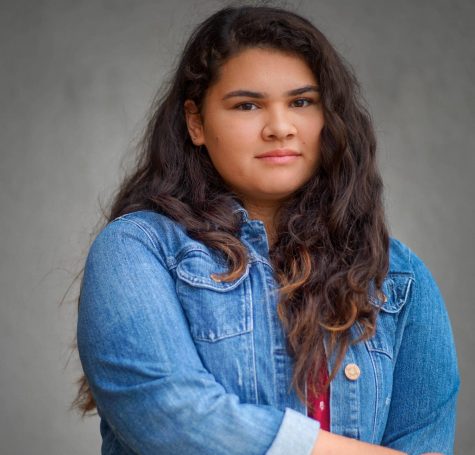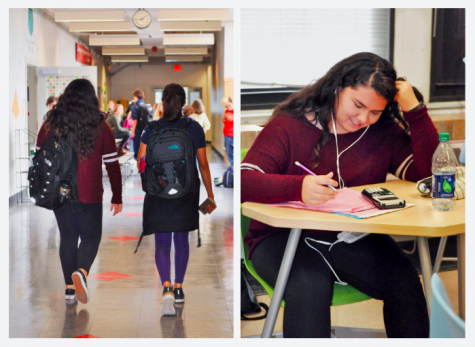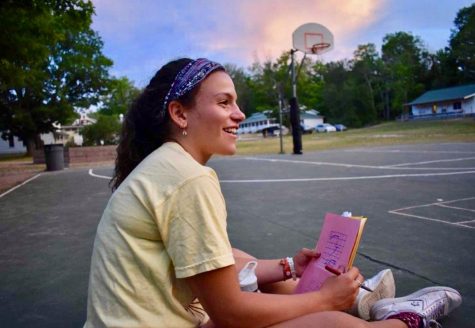Lourdes Salazar-Bautista had to decide between two homes. In Ann Arbor, she is with her closest friends, in her hometown, with the freedoms she loves. In Toluca, Mexico is her family: her 14 year-old brother, her mom who she considers one of her closest friends and her dad who she had not lived with for years. At sixteen, Lourdes had to choose which home to live in.
1998 – United States

Rewind eight years to the day that changed everything.
Lourdes’s mother, Lourdes Salazar’s day life was interrupted by an aggressive knock on the door. On the other side were U.S. Immigration and Customs Enforcement (ICE) agents who arrested Salazar on a 1998 deportation order she says she didn’t know existed.
In 1997 Ms. Salazar came to United States on a tourist visa and overstayed it by 13 years. She went on to marry a close-friend from home, Luis Quintana, who, since 1985, had been illegally working in the United States.
The Quintana-Salazar family had the life those home in Mexico longed after. A large house witha backyard. Self-ran business. Clean record. U.S. born children.
All three of Ms. Salazar’s children — Pamela, 19, Lourdes, 16 and Bryan, 14 — were legal U.S. citizens by being born in the United States. However, her and her husband were not.
After talking to a lawyer, Ms. Salazar and the ICE officers made an agreement: Salazar could remain in the country with her children, with annual check-ins. The catch, Mr. Quintana would be deported immediately.
The family decided that is what would be best for the kids and they soon said goodbyes to their dad in the Detroit immigration lockup.
Mr. Quintana called from their home village in Mexico every Sunday and video chatted on special occasions. On Christmas break every year, the kids would go visit their extended family in Mexico’s countryside.
The family has been separated by 2,290 miles and a border for eight years.
Since President Trump took office in 2017, there has been a large increase in deportations and arrests of undocumented workers. In March 2017, at Ms. Salazar’s annual meeting with ICE ( her first since the Trump Inauguration), they told her that they had “new instructions” and that she must leave the country.
“Deportation is worse than ever and I think that’s because of what Trump has to say,” Lourdes Salazar said. “Deportation and immigrants should not be viewed or treated like this, and if anything needs to change in our society, it’s this.”
Salazar is right, deportation is occurring at higher rates than ever before. In 2017, 81,603 people inside the U.S. were deported, up 13 percent from the year before (according to ICE reports).
Ms. Salazar and her children fought the ruling. There was a petition formed with over 8,000 signatures and a rally where hundreds of people showed their support and solidarity. It did not help.
2017 – Toluca, Mexico
In August, Lourdes, Bryan and Ms. Salazar said goodbye to their American home, friends and lives and boarded a plane to their future in Toluca, Mexico.
Life in Mexico was so vastly different from the one here, Lourdes said. At school, Lourdes, who has been diagnosed with ADHD, sat in a single claustrophobic classrooms with 60 plus kids all day. The teachers would rotate from classroom to classroom and the kids would be stationary all day, the opposite of school back at home.
“It was horrible,” Lourdes said. “I hated it because I’m used to getting up and going around and I couldn’t. If the teacher leaves that means we can get up and go outside, but sometimes if the next teacher is [ready] he or she comes in immediately. So we sit down for another hour.”
Lourdes divides the school kids into two groups: her friends and the others. Her friends would help her with the language, though she had spoken Spanish at home since she was little, and the others would tease and bully her because of the knowledge gap. Her friends began talking to her right away, the others only showed interest when they found out she was American. One commonality between the groups, they all thought Lourdes moved to Mexico for her dad’s job. Over the 10 months she was there, Lourdes only told three people her true situation.
Lourdes felt a difference not just in school and friends but in every aspect of her life. There, as Lourdes now refers to Mexico, she had to wear a uniform consisting of a blue sweater and white knee high socks as opposed to Michigan, her school does not even have a dress code.
After school, Ms. Salazar liked to go the grocery store in town, much to the kids protest, they had to go with her — Bryan and Lourdes hated being seen in public with their uniforms — they would do whatever they could to help their mother. It was also one 0f the only times Lourdes would get out of the house.
Back in the U.S. she was only months away from getting her drivers license and having all the freedom in the world. In Mexico, she rarely left the house.
“I feel more active [in Michigan],” Lourdes said. “Over there we would just stay in the house because everything was too far. And here, I feel like I’m more active, even just like walking around the halls.”
2018 – Ann Arbor, Michigan
Born here in the United States, Lourdes has an American Passport and is a legal citizen. When her father then her mother were deported, Lourdes and her siblings never, legally, had to leave.
Pamela, who is a sophomore at Michigan State University, always knew she was going to stay here in Michigan. In the summer she lived with her uncle in Ypsilanti, MI and during the year, she lives in the dorms in East Lansing.
The family decided that it would make the most sense if Lourdes, who was 15 at the time, and Bryan, 12, moved down to live with their parents. However, the thought resonated with Ms. Salazar and Lourdes that she could live alone in Ann Arbor and stay with her uncle if she wanted.
The choice was up to Lourdes: here or there, Mexico or America, family or home.
In July, Lourdes and Bryan came to visit their uncle and cousins for a month. Everyone, in Mexico and Ann Arbor, knew it was a test run.
“I saw how everything used to be and I really missed it,” Lourdes said. “And I just really did not want to go back here because of many reasons. Two weeks before I left to go back to Mexico, I decided I wanted to stay here.”
Lourdes wanted to break the news to her parents in person. Her mom, though she would have missed her youngest daughter greatly, always had a feeling she was going to come back to Michigan. Mr. Quintana, on the other hand, did not want to let go of his daughter who he had just gotten back. Unknown to the situation, Lourdes’s uncle called and told the parents of Lourdes’s her plan to stay. Lourdes, to this day, does not know exactly how they reacted. The family did not talk about her moving back until the days before.
Lourdes says that her mom always knew she was always going to move back. “I felt like she was easing into it, Lourdes said. “She would say, oh, when you’re over there, I’m gonna try to help. I’m going to try to help you with this.Or with our like, I’m a call this person to help you with this. . . . She kind of knew already.”
Ms. Salazar, Mr. Quintana and Brian are all living in Mexico and are very happy. Lourdes says that Brian is adjusting well, has found a great group of friends and loves Mexico and everything about it.

“I kept telling people. I was like, okay, I’m actually saying, it’s a real thing. Once I landed [in Michigan] it was like, 100 percent sure I was in the right place.”
She talks to her mom everyday before school and before she goes to bed, her dad about every other day, and Bryan “when he is not playing video games.” They are planning on her coming to visit over the summer.
Lourdes is now living with her uncle, aunt and three cousins — who all call her “sister” — in Ypsilanti, is attending Community High School where she went to school freshman year, is back with her closest friends, and is happy.
Lourdes Quintana-Salazar finally feels at home. She is back at Community, back with her friends, back to being active, back to her normal.



